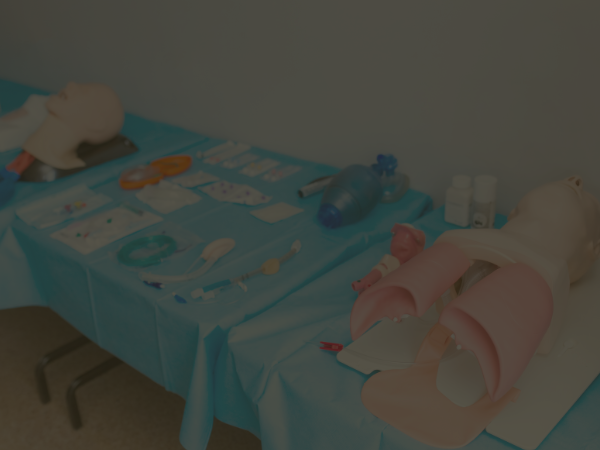As outdated views of what a nurse looks like continue to fade, we continue to see more men entering a nursing career. Nurses in the US are just as skilled, compassionate, and dedicated to patient care as they ever were. But they’re also increasingly diverse, specialized, more educated, and in many cases male. According to the Census.gov, the number of male nurses has tripled since the ’70s. Still, they only make up about 12% of the total nurse population, as the male nurse continues to remain a less common sight.
What drives men into a nursing career? What unique qualities do they often have to offer the profession and patients? Do you have what it takes to become a male nurse in 2021? You’ll explore it all in these 20 interesting facts about male nurses you probably didn’t know.
1. Nursing Was Once a Male-Dominated Field
 Interesting facts start here with a history of the nursing career. Until fairly recently, if you were a male nurse, you were the norm, not the exception.
Interesting facts start here with a history of the nursing career. Until fairly recently, if you were a male nurse, you were the norm, not the exception.
Just narrowly looking at the Western World, we see that nursing was primarily a man’s job up to a certain point in both Europe and the Pre-Columbian MesoAmericas.
In Ancient Rome, men were seen as caregivers and naturally worked in nursing roles rather than women. During the plagues in Europe, those caring for the patients tended to be men. Even during the US Civil War, nurses were men.
Up until the mid-1800s, the thought of a female nurse was peculiar at best and even scandalous in some communities.
However, the idea that a nurse should be male was by no means agreed upon throughout what would later be known as Europe. In Viking-dominated Scandinavian countries during medieval times, all healthcare was considered a woman’s role.
2. U.S. Male Nursing Shifted Around the Turn of the 20th Century
Nurse and Statistician Florence Nightingale is credited by many as opening the door for women to become nurses. As a social reformer who managed patient care during the Crimean War, she pushed for formal education for nurses and began personally training and later heading training programs for midwives and nurses. They learned medical best practices that would help them perform better in their roles.
As you can imagine, her students at the time tended to be women. And so, initially, women became well-trained nurses while male nurses continued to learn on the job. Moving into the 20th Century, this created an imbalance that leaned toward lady nurses.
A little later, in 1901, the Army Nurse Corps (ANC) was established to train nurses to care for soldiers on the battlefield. Because only men could serve as soldiers at the time, the ANC would only admit and train women in their program. This led to a disproportionate number of women in the field and a bit of a stigma for the male nurse. This stigma would follow the profession into the civilian sector, and dominate for the next 50+ years. But that’s changing.
3. In the 2020s, Male Nursing Is Rapidly Growing
Nursing as a whole is an in-demand profession right now. Per BLS.gov, demand is growing faster than average. Largely driven by an aging population and a continued uptick in chronic conditions, communities need people to enter a nursing career now more than ever. Given the industry’s expansion, more people are becoming nurses. This includes men.
As more men become nurses, more healthcare organizations are seeing the benefits of having male nurses on staff. This is creating a greater demand and expanding career opportunities for men who choose this rewarding career.
As an example, the ratio of male nurses to female has grown 66% at Nationwide Children’s Hospital, a large Ohio-based healthcare system.
4. Male and Male-Identifying Nurses May Help Some Patients Feel More Comfortable Emotionally
This isn’t just about interesting facts. As a current or future nurse, you know patients are why nurses do what they do. How do male nurses impact patient care?
One of the benefits of having male nurses is that it allows patients to feel represented in healthcare. When male patients see both men and women caring for them in a nursing capacity, they tend to feel more comfortable and supported.
They have someone they can talk to other than the doctor who can better understand what they’re going through as a male patient. A male patient who may be unable to express weakness around women, may have some comradery with a male nurse that allows them to open up about what they’re experiencing, so they can get better care.
5. Male Nurses May Make Certain Procedures More Comfortable
Some procedures that nurses perform are invasive and can be embarrassing for the patient, such as placing a catheter. A patient may feel more at-ease if a man is doing this.
6. Male Nurses Are Role Models
Even when you think they’re not paying attention, children are sponges. They soak up what they see and it becomes their “normal”. If young boys only ever see female nurses, they automatically think that all nurses are women. That’s a shame because a lot of those boys would make amazing nurses and also benefit from this rewarding career.
The more men nurses they see, the more they realize: Yes, male nurses are a thing. And as a young boy, they recognize that it’s okay to want to be a nurse. They’re more likely to pursue a nursing career.
As a male nurse, you’re a trailblazer for those who follow you into the field. You’re paving the way for others to enter what can be a very life-affirming and lucrative career.
7. Career Stability Driving More Men to Consider Nursing Career
There’s a lot of volatility in many industries. Jobs people once held for a lifetime are disappearing. Male-dominated professions that enabled people to make a good living have now been overrun by automation or obsolesce.
Nursing is a growing profession with a lot of job security, advancement, and money-making potential. That’s attractive to anyone.
8. Male Nurses Make More Money
This isn’t about the gender pay gap. When you compare a similarly skilled and experienced man working in a traditionally “male-dominated job” with a man who becomes a nurse, the nurse will make about four percent more money.
Pay Can Vary Widely
The 2020 median pay for registered nurses (RN) is $75,330, with a starting salary around $50,000. It’s important to keep in mind pay varies by region and cost-of-living.
Because of cost of living differences, a nurse making $55,000 in Tennessee would typically be able to afford a nicer living situation than the same nurse in California making $75,000, and so on.
9. Men Are Finding Flexibility You Don’t Get in Other Professions
Nursing is one of the most flexible professions out there, making it easy to find your passion within the field. With a nursing degree, you can move into a variety of industries and types of jobs. And it’s fairly easy to shift into something different if you don’t like the role you’re in without having to go back to school.
So Many Options
You can work in research, patientcare, training, insurance, or management — just to name a few. You could work in a 9-5 nursing desk job or travel to people’s homes. You may like working in a small doctor’s office, a non-profit community clinic, or a hospital.
Maybe you enjoy working nights, days or having extended weekends. Perhaps you prefer to work temp jobs and never stay anywhere long. Alternatively, you may be looking for somewhere you can stay for decades to grow into the profession.
Nursing is a highly flexible career that allows you to find the people and place that feel like the perfect match, so you love your career.
10. They Get Paid to Travel
With nursing such a growing field, many nursing shortages exist around the US. Hospitals turn to temporary nurses or temp-to-hire nurses to fill the gap.
At the same time, some parts of the country have a seasonal need for more nurses but can not support that payroll at other times of the year. Think resort areas with seasonal appeal, like skiing communities, snow bird neighborhoods, or summer vacation hotspots.
Additionally, timing issues with nurse illness or pregnancy could stretch resources thin.
Locum tenens services connect nurses who want to travel around these locations. This is a great opportunity for a male nurse to work on several different types of assignments in a year to find the city or type of nursing they’d enjoy more long-term.
11. There Are Special Scholarships for Male Nurses
Anyone who wants to become a nurse will find opportunities for financing and support. But as a future male nurse, you’ll find opportunities reserved specifically for male nurses.
Many donors see the benefits of increasing the number of male nurses in the field. They generously give to scholarship funds that help men pursue their dreams of becoming a nurse.
The American Association for Men in Nursing offers one such fund.
12. Nursing Is Their First Choice
 There’s a sexist misconception out there that the only reason men become nurses is because they couldn’t cut it in an MD program. This stereotype is understandably harmful and simply not true. Overwhelmingly, men and women who become nurses do so because they’re attracted to nursing. Being a nurse is very different from being a doctor. It takes a special kind of person to do either job.
There’s a sexist misconception out there that the only reason men become nurses is because they couldn’t cut it in an MD program. This stereotype is understandably harmful and simply not true. Overwhelmingly, men and women who become nurses do so because they’re attracted to nursing. Being a nurse is very different from being a doctor. It takes a special kind of person to do either job.
Nurses are more likely to get hands-on and spend time with patients. They take care of patients day-to-day, coordinate care among other medical providers, and provide compassionate support. A doctor’s role is typically to diagnose an illness and order/perform the correct treatment.
This isn’t to say that some people of any gender don’t start one path and switch for any number of reasons. But to assume this is more common among males is just plain silly.
13. In the US Military, 1/3 of Nurses Are Men
Men may only make up around 12% of total nurses. But they do dominate in certain nursing professions, like military nursing, where 35% of nurses are men.
14. 41% of Nurses Work As Nurse Anesthetists
While not a majority, a high percentage of male nurses gravitate toward one of the highest paying nursing positions available, a certified nurse anesthetist (CRNA). The average CNRA makes nearly $200,000/year according to nurse.org.
15. Male Nurses Still Face Discrimination
We’ve come a long way toward gender equality in the U.S. But around 70% of male nurses consider stereotypes about them to be their biggest barrier to overcome. They face an assumption that they aren’t as caring or committed to patient well-being as their female counterparts, which is of course not true. People also frequently question them about why they aren’t a doctor, as if they should have been one instead.
In fact, if you think about it, we still call them “male nurses” instead of just nurses, suggesting some cultural bias.
16. Walt Whitman Was a Nurse
The author of “Leaves of Grass”, a collection of poems you likely read in high school, was a journalist, poet, and part-time nurse during the US Civil War.
17. Many Go Into Nursing Later in Life
This is true for both men and women nurses, but the average male nurse is slightly older (35) compared to the average female nurse (31). The average nursing student is in their late 20’s with nursing students pursuing advanced degrees in their late 30s or 40s. It’s important to note these are averages, and people in their 50s and 60s also choose to go back to school to become registered nurses, nurse practitioners, night nurses, and more.
18. The Patron Saint of Nursing is Male
St. Camillus de Lellios founded the Camillan Order of Healthcare Workers in the 16th Century and was later canonized in 1746 as a saint by Pope Pius XI. St. Camillus was inspired to form this organization after noting what he perceived as inhumane treatment of patients in hospitals at the time.
He believed that patients didn’t just need a doctor there to help them get well. They needed an advocate and caregiver who would ensure they were comfortable and supported. Today, we see nurses as compassionate caregivers, bringing emotional support and dignity to patients because of people like St. Camillus who saw the need for a softer side of medicine.
19. Male Nurses Can Continue Their Education Online
Busy male nurses no longer have to head back to the classroom to earn continued medical education credits (CME) they need to retain their nursing license.
The Internet has opened up opportunities for male nurses complete these courses online, in their spare time, and at their own pace.
Get your certification or recertification with Joint Commission (JCAHO) Compliant online course like these:
- Advanced Cardiac Life Support
- Basic Life Support
- Bloodborne Pathogens
- Pediatric Advanced Life Support
20. Men Enjoy Being Nurses
We certainly can’t generalize “all men”. But overwhelmingly, the men who have chosen a nursing career say they love it. What do they enjoy about it?
- Helping others
- Connecting with patients on a deeper level
- Being their for people having a tough time
Do you have what it takes to be a nurse? It’s time to find out.
What is your experience of working as a male nurse? Share your story with us.







Leave a Reply